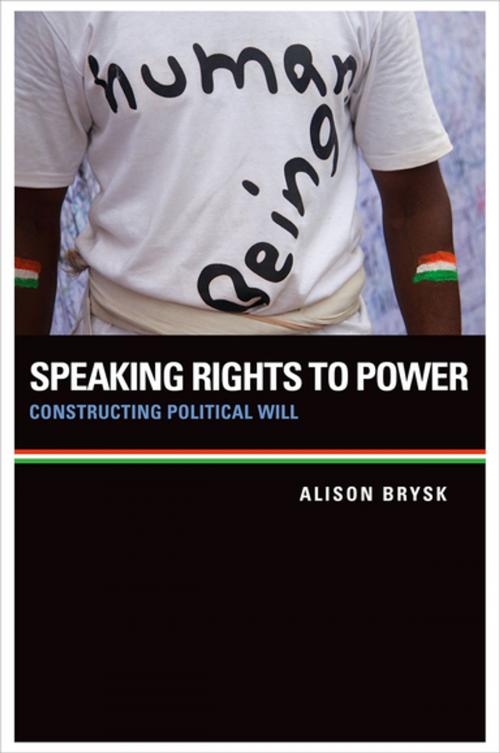Speaking Rights to Power
Constructing Political Will
Nonfiction, Social & Cultural Studies, Political Science, Government, Civics, International, International Relations| Author: | Alison Brysk | ISBN: | 9780199359264 |
| Publisher: | Oxford University Press | Publication: | August 1, 2013 |
| Imprint: | Oxford University Press | Language: | English |
| Author: | Alison Brysk |
| ISBN: | 9780199359264 |
| Publisher: | Oxford University Press |
| Publication: | August 1, 2013 |
| Imprint: | Oxford University Press |
| Language: | English |
How can "Speaking Rights to Power" construct political will to respond to human rights abuse worldwide? Examining dozens of cases of human rights campaigns and using an innovative analysis of the politics of persuasion, this book shows how communication politics build recognition, solidarity, and social change. Building on twenty years of research on five continents, this comprehensive study ranges from Aung San Suu Kyi to Anna Hazare, from Congo to Colombia, and from the Arab Spring to Pussy Riot. Speaking Rights to Power addresses cutting edge debates on human rights and the ethic of care, cosmopolitanism, charismatic leadership, communicative action and political theater, and the role of social media. It draws on constructivist literature from social movement and international relations theory, and analyzes human rights as a form of global social imagination. Combining a normative contribution with judicious critique, this book shows how human rights rhetoric matters-and how to make it matter more.
How can "Speaking Rights to Power" construct political will to respond to human rights abuse worldwide? Examining dozens of cases of human rights campaigns and using an innovative analysis of the politics of persuasion, this book shows how communication politics build recognition, solidarity, and social change. Building on twenty years of research on five continents, this comprehensive study ranges from Aung San Suu Kyi to Anna Hazare, from Congo to Colombia, and from the Arab Spring to Pussy Riot. Speaking Rights to Power addresses cutting edge debates on human rights and the ethic of care, cosmopolitanism, charismatic leadership, communicative action and political theater, and the role of social media. It draws on constructivist literature from social movement and international relations theory, and analyzes human rights as a form of global social imagination. Combining a normative contribution with judicious critique, this book shows how human rights rhetoric matters-and how to make it matter more.















